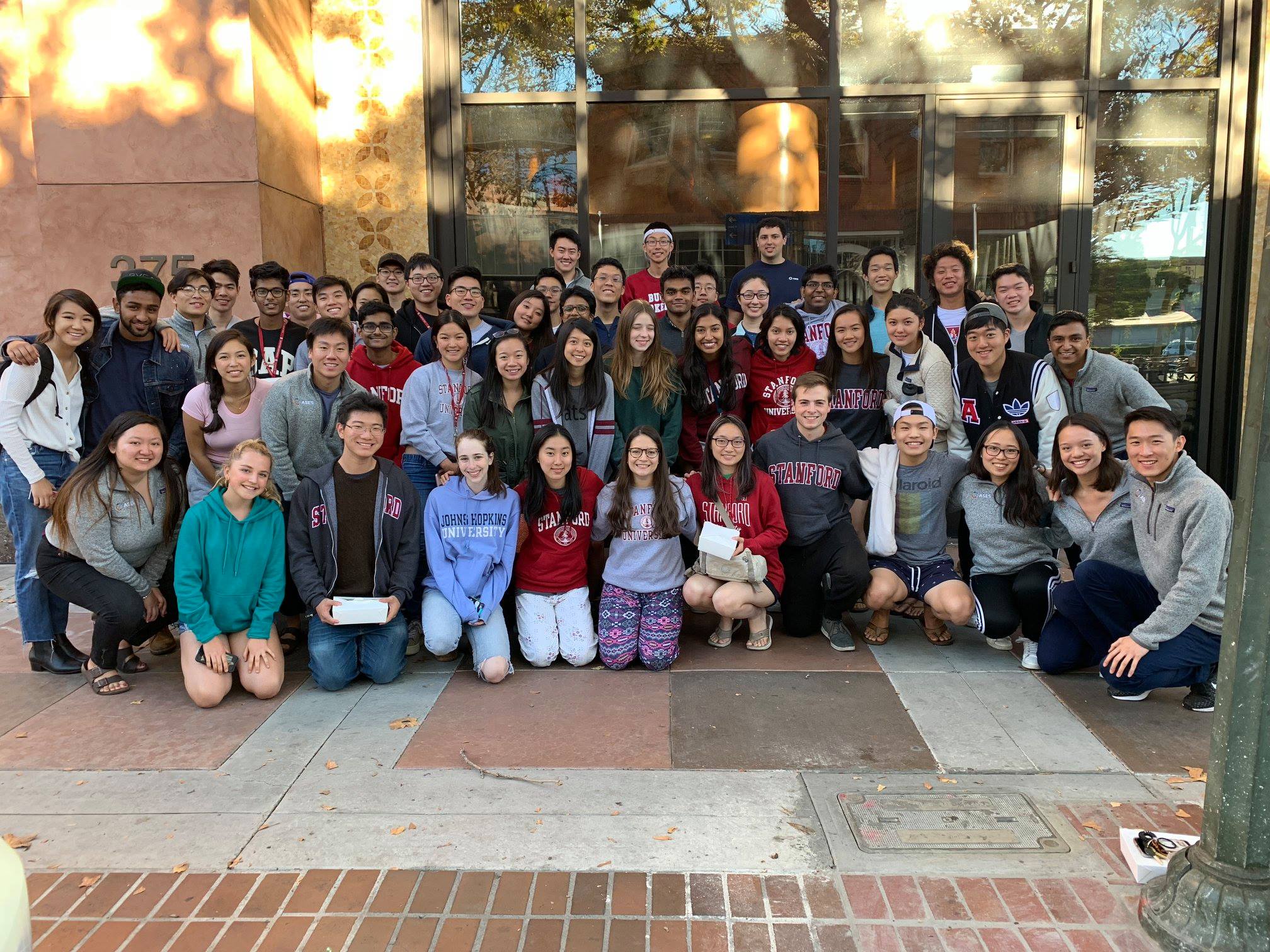Huddled together and clutching a tub of large cookies, a few of the latest additions to the Asia-Pacific Student Entrepreneurship Society (ASES) waited for people to arrive at the Row late on the Friday and Saturday nights of Oct. 12-13.
Christine Cheng ’22 and her six teammates, Anne Lee ’22, Markie Wagner ’21, Alice Ballard-Rossiter ’21, Raymond Yin ’22, Jason Ah Chen ’22 and Ryan Long ’22, were selling cookies as part of the ASES Bootcamp’s $20 challenge, the first step in a 12-week intensive program in which teams are advised by an ASES member and a local venture capital mentor to prepare a final product pitch in front of a venture capital board in January.
At Bootcamp’s first meeting on Oct. 10, the 40 recent admits were split into six teams and introduced to the challenge: with a $20 investment, make as much money as possible in a week.
“We wanted to get them into the entrepreneurial mindset that the next 10 weeks will require, get them hustling, selling, talking to customers,” said ASES co-president Nicholas Benavides ’19. “It’s also a good way for people to get to know each other.”
Andrea Collins ’22 and her group raffled off a lunch and resume review with Benavides and ASES co-president Maurice Chiang ’19, along with a $20 gift card to the vendor of the winner’s choosing. The raffle winner has yet to be announced, as tickets are still being counted. In addition to the raffle, one team member made and sold Indian food, and another sold her old clothes.
The biggest challenge was convincing people to buy tickets, Collins said, because few people were aware of who Chiang and Benavides were or of the value of their experience and advice.
“I learned that in order to market something to students, you have to meet them where they are, like the group that spent a lot of time and effort going out on a Friday night to sell cookies,” Collins said. “You have to go to where your market is.”
Cheng’s team baked their cookies from scratch at Kappa Alpha Theta because one teammate had access to the open kitchen supplies, allowing the team to spend their investment only on chocolate chips.
After camping out until 1 a.m. on both nights, Cheng’s team sold the remainder of the cookies at their respective dorms, which was faster but less profitable.
In some cases, however, Cheng explained that profit wasn’t everything.
“If we saw anyone who was too drunk or high, we gave them a cookie for free because safety is more important,” she said.
In addition to selling cookies, Cheng walked around her dorm on Oct. 10, creating a “human amoeba” by linking arms with her dorm mates. She charged $1 for admittance to the amoeba and made $20. According to Bootcamp co-director Lauren Yang ’21, other groups asked for money, sold cookies in downtown Palo Alto, charged people to vote on whether water is wet and created a candygram service that delivered after midterms.
On Oct. 17, ASES announced that Cheng’s team, which earned $325, had won. They now have final say over where the total competition revenue of around $600 will be donated. The team has yet to finalize their decision, but, according to Cheng, they are considering the Humane Society or a local foster home.
Contact Sonja Hansen at smhansen ‘at’ stanford.edu.
The Daily article was updated to identify all members of the winning team.
